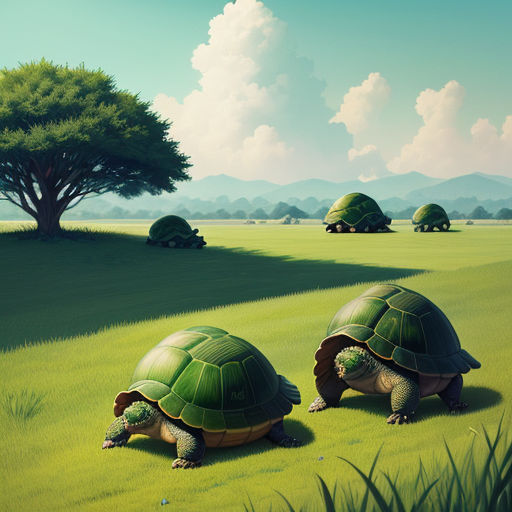
The Extraordinary Grass Foray
By Jinjen

05 Sep, 2023

Once upon a time, in a serene grassland lived two tortoise siblings named Fuku and Yume. They were quite different. Fuku, the older sibling, loved to feast quickly on the juicy green grass, while Yume, the younger one, savored every bite.
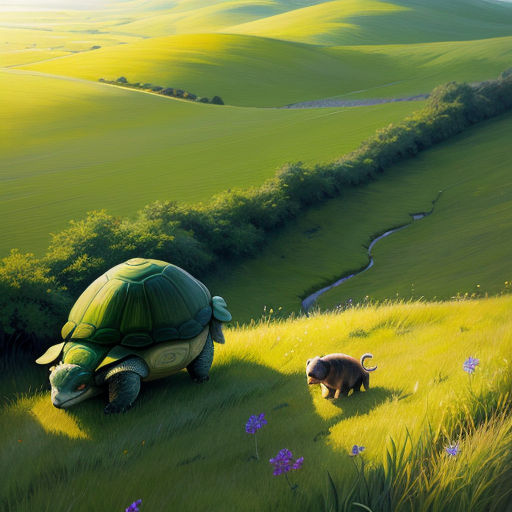
One sunny day, Fuku and Yume decided to venture farther into the grassland, driven by their curiosity. Their small eyes beamed with excitement and their hearts brimmed with anticipation.

There, they stumbled upon an untouched area with lush emerald grass. Fuku's mouth watered at the sight, while Yume admired the beauty of the verdant expanse.

Fuku couldn't resist and started feasting on the extraordinary grass. The taste was absolutely divine, and he couldn't help but eat faster.
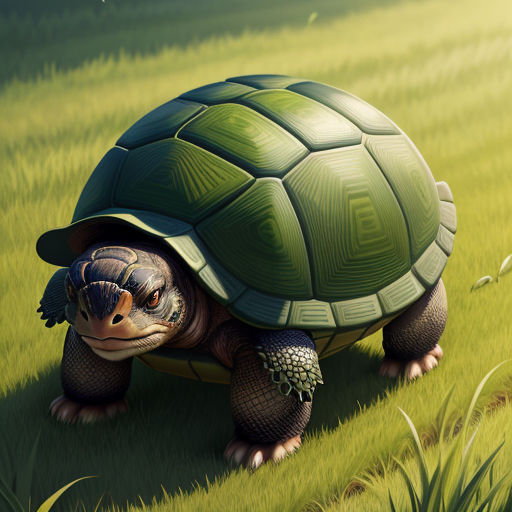
However, to Fuku's surprise, the more he ate, the faster the grass grew back. It was as if the grass was challenging him, enticing him to keep eating.

Meanwhile, Yume began to eat the extraordinary grass too, but instead of rushing, she took her time, savoring each bite and the influx of refreshing flavors.
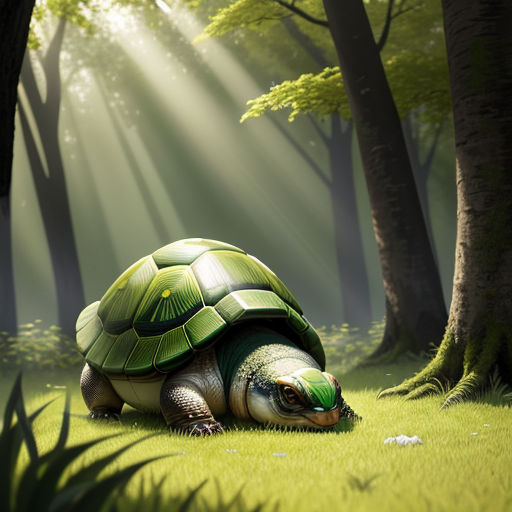
The fascinating part was that the grass did not regrow as Yume chewed slowly. It seemed as if the extraordinary grass adapted to the eating pace of the tortoise who tasted it.
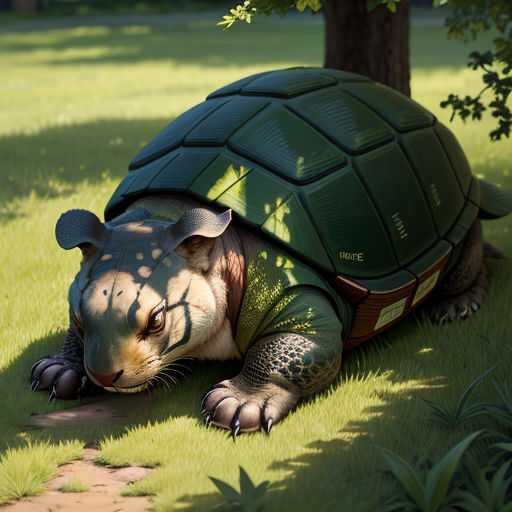
Fuku, noticing this, decided to challenge himself. He started eating slower, much like his sister Yume. However, the grass still grew quickly, keeping him in a constant feast.
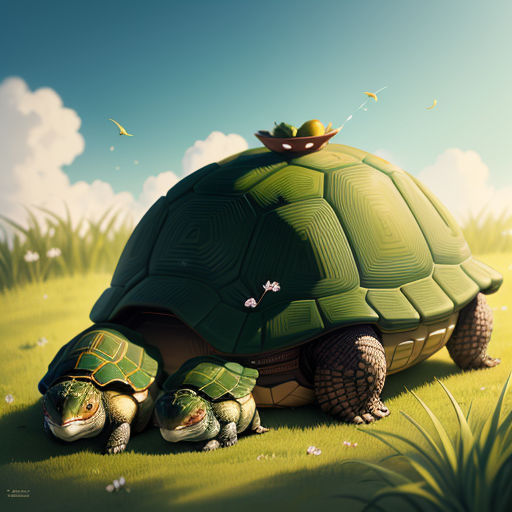
Both Fuku and Yume were amused by the extraordinary grass. Yume was especially fascinated to see her brother's hurried feasting not bearing fruits.
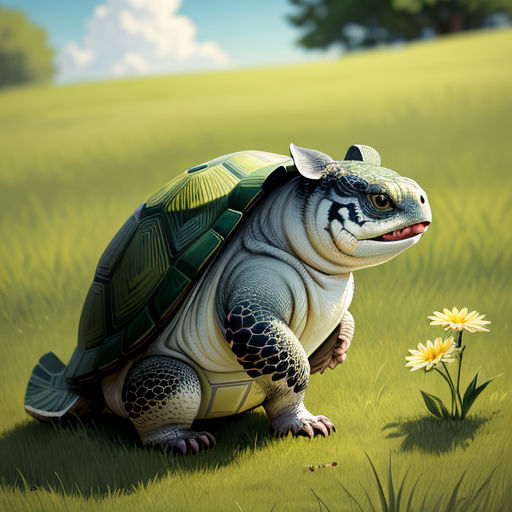
Fuku, however, was not one to give up. He started observing Yume, trying to understand how to slow down. He copied his sister’s mannerisms, but the grass just wouldn’t cooperate.
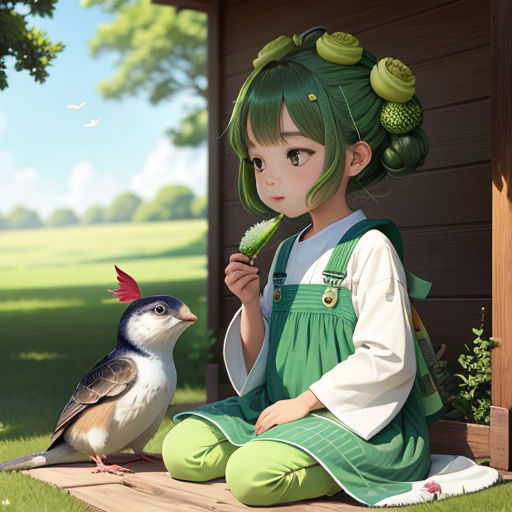
Meanwhile, Yume enjoyed the taste of the grass, while also teaching her brother the art of patience. She would eat, wait, appreciate the flavor, and then continue.
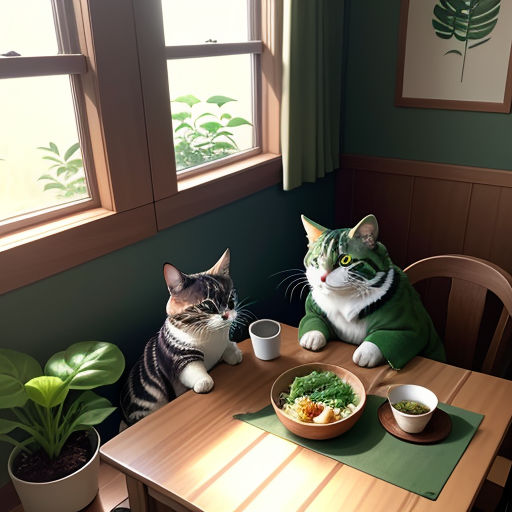
Fuku was inspired by Yume’s tranquility and decided to give it another try. Suppressing his impatience, he started eating slowly, replicating Yume's pace.

To his surprise, this time, the grass did not regrow immediately. Fuku felt happy about his progress and continued to practice eating slowly, much like his little sister.

Days turned into weeks, and the tortoise siblings continued to visit their extraordinary grass spot. Fuku, with some effort, was gradually learning to eat slowly.
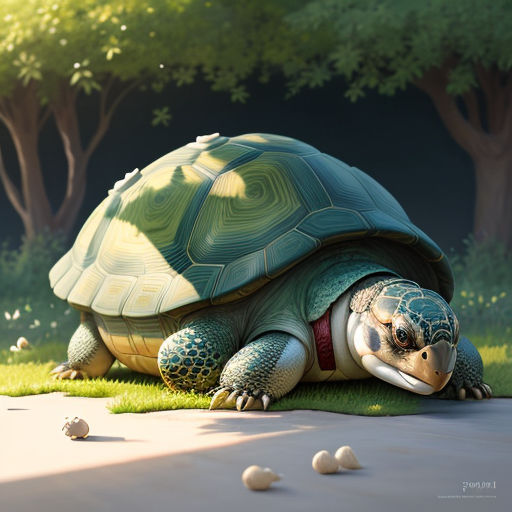
One day, to Fuku's delight, he managed to eat as slowly as Yume. That day, the grass grew as leisurely as it did for Yume, a sign of his success.

Yume was proud of her brother. She had always admired his determination, and now she saw how it led him to learn a valuable lesson in patience and perseverance.
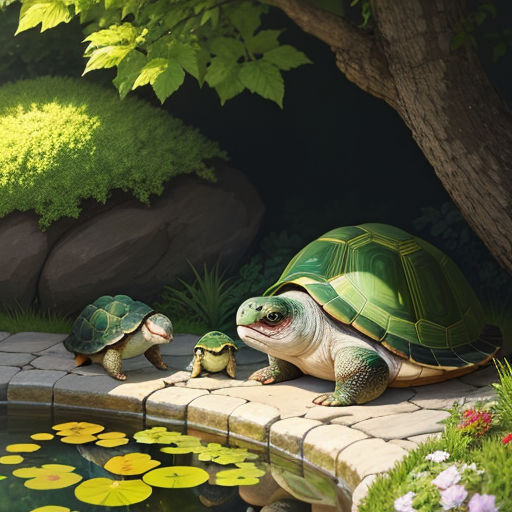
Fuku thanked Yume for her guidance, acknowledging that he had learned to slow down, admire the beauty of things, and enjoy each moment, just like she did.
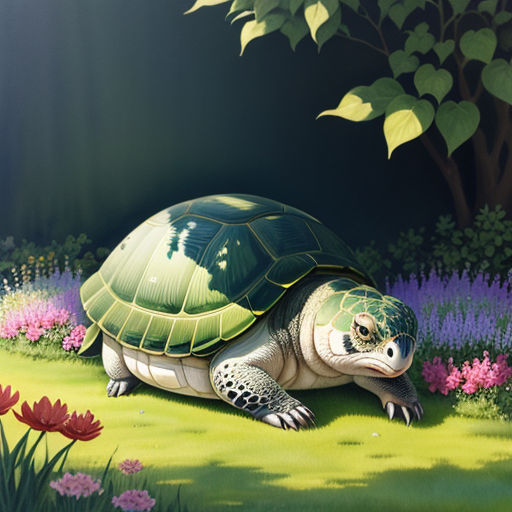
From then on, Fuku no longer rushed through meals. He savored each bite of the juicy grass, enjoying the myriad of flavors each blade brought.

The extraordinary grass was more than just a meal for them; it was a teacher that taught the importance of patience and how to enjoy life at a slower pace.

The tortoise siblings continued their foray for different types of grass. However, their favorite remained the extraordinary grass that taught them a life lesson.
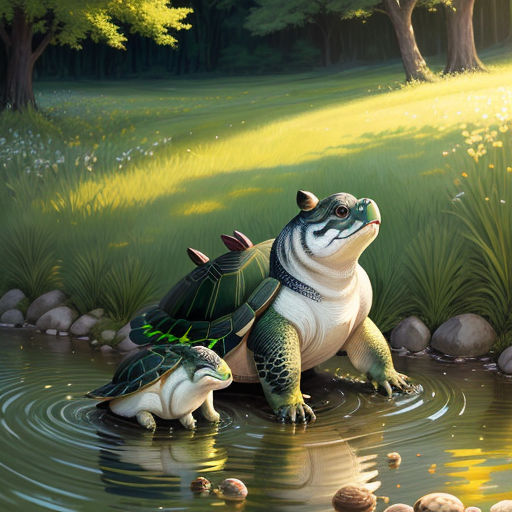
As the seasons changed, they returned periodically to the extraordinary grass, reminding themselves of the lesson they learned and renewing their bond over shared experiences.
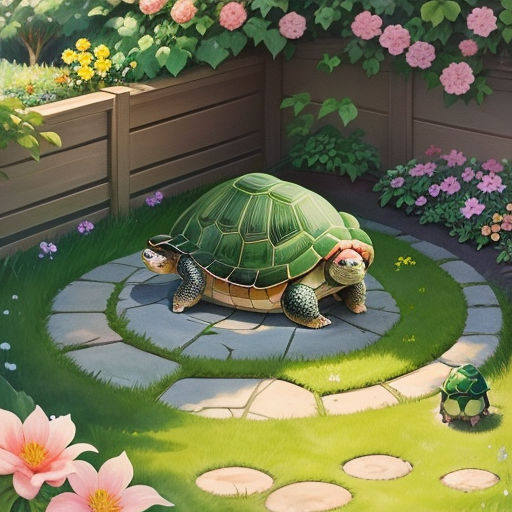
Fuku’s old habits occasionally resurfaced. But Yume was always there to remind him of their extraordinary grass foray and the value of taking time to savor life's moments.
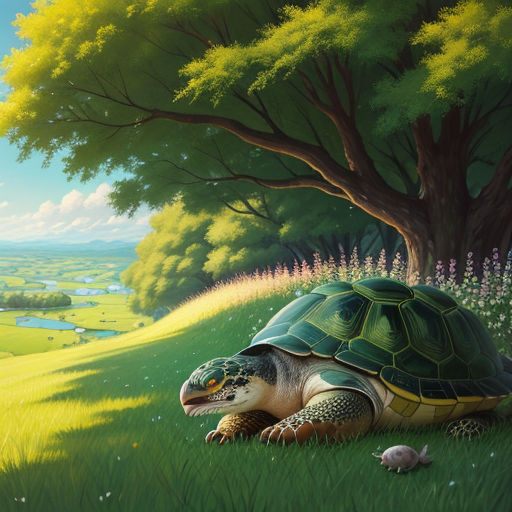
They lived happily in their grassland, cherishing their extraordinary grass foray and the lessons learned, sharing their unique story with anyone who came to visit.
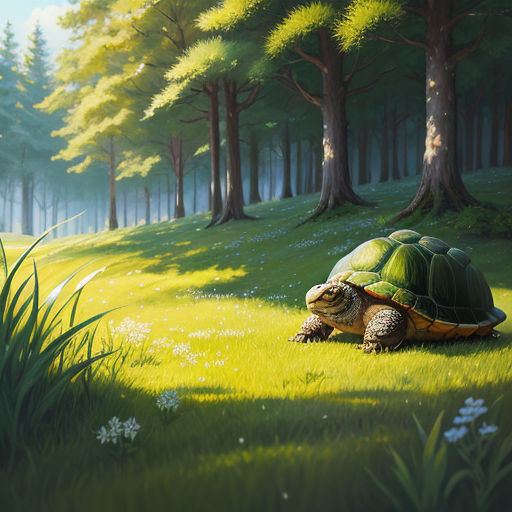
Every now and then, Fuku would gaze at the extraordinary grass, grateful for the adventure, and importantly, how it transformed him from a fast eater to a slow, content one.
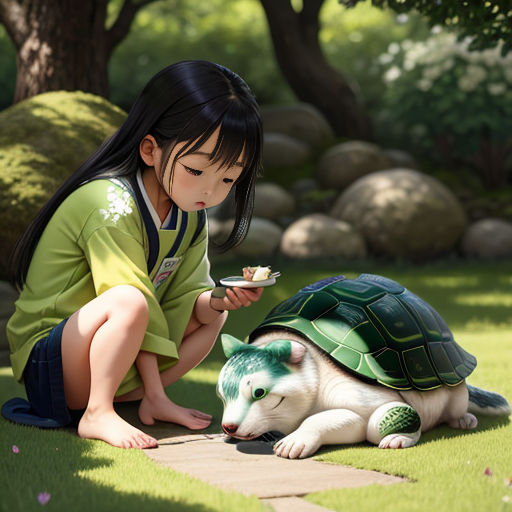
As for Yume, she was happy to see her brother's transformation. Witnessing Fuku's patience and perseverance was truly an extraordinary experience for her, just like their extraordinary grass foray.
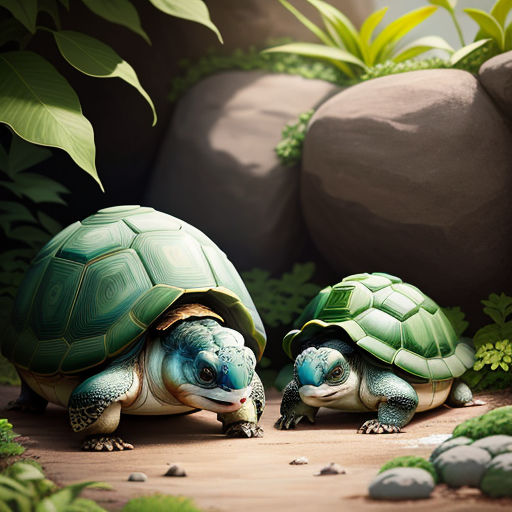
Ultimately, Fuku and Yume's unique adventure served as a lesson to other creatures, teaching them about joy, patience, perseverance, and the beauty of enjoying life's simple pleasures.
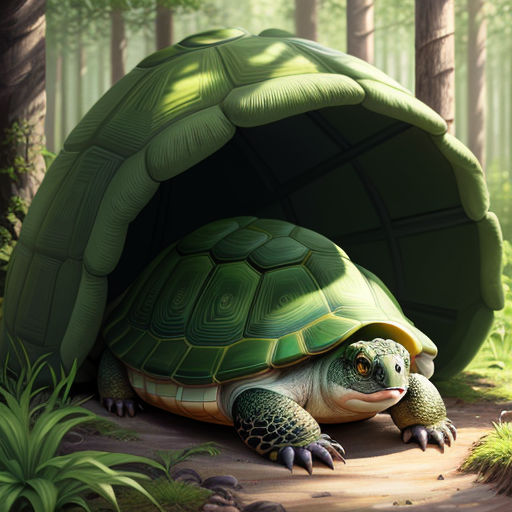
Whether it was the whispering winds, the singing birds, or the rustling grass, all the creatures carried forward the tale of Fuku and Yume's extraordinary grass foray.
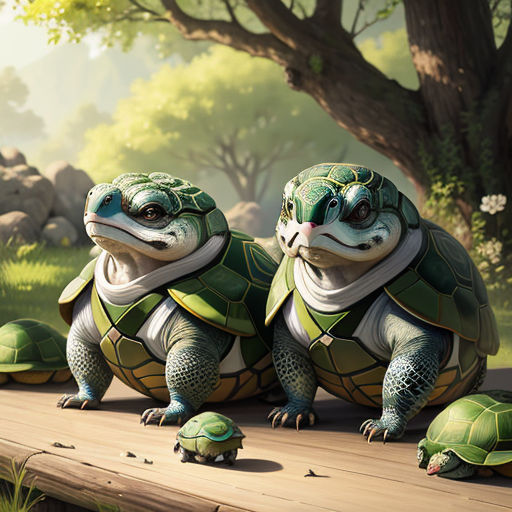
Even the extraordinary grass seemed to smile at Fuku and Yume, reflecting their patience and resilience, and surrounding them in a warm, loving embrace.
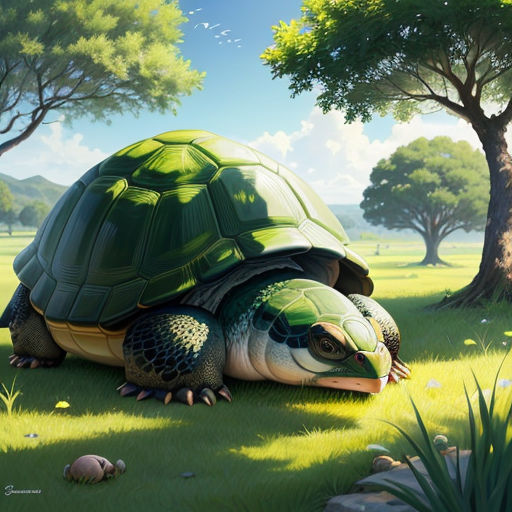
Today, Fuku and Yume are well-known in their grassland, not only as tortoise siblings with unmatched unity but also as the creatures that the extraordinary grass humbled.
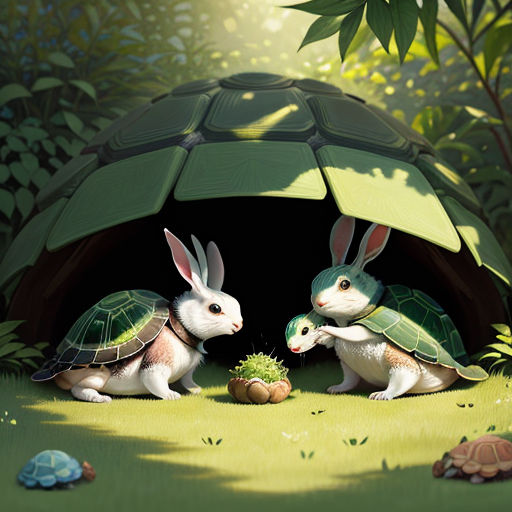
Their extraordinary grass foray remains an inspiration for every creature in their kingdom, reminding them to slow down, savor their meals, and cherish every moment in life.

Thanks to Fuku and Yume, the grassland thrived not just with the melody of nature but also with the rhythm of patience, perseverance, and unity, enriching everyone's life.

Thus, the siblings continued to live in harmony with nature, savoring their meals and each other's company, just as the extraordinary grass taught them.

They continue to explore different terrains, but their hearts always lead them back to the extraordinary grass that forever changed their habits and taught them the joy of slowing down.
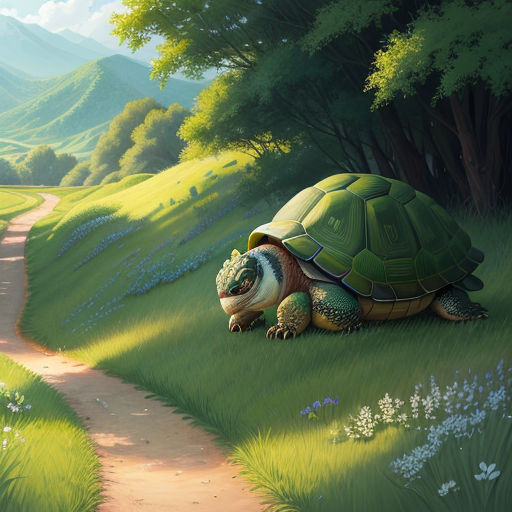
And so, Fuku and Yume's extraordinary grass foray turned into a tale of warmth, growth, and transformation, etching their legacy into the heart of their grassland.

This is the story of Fuku and Yume - a tale of two tortoise siblings who turned an ordinary grass foray into an extraordinary journey of self-discovery and growth.